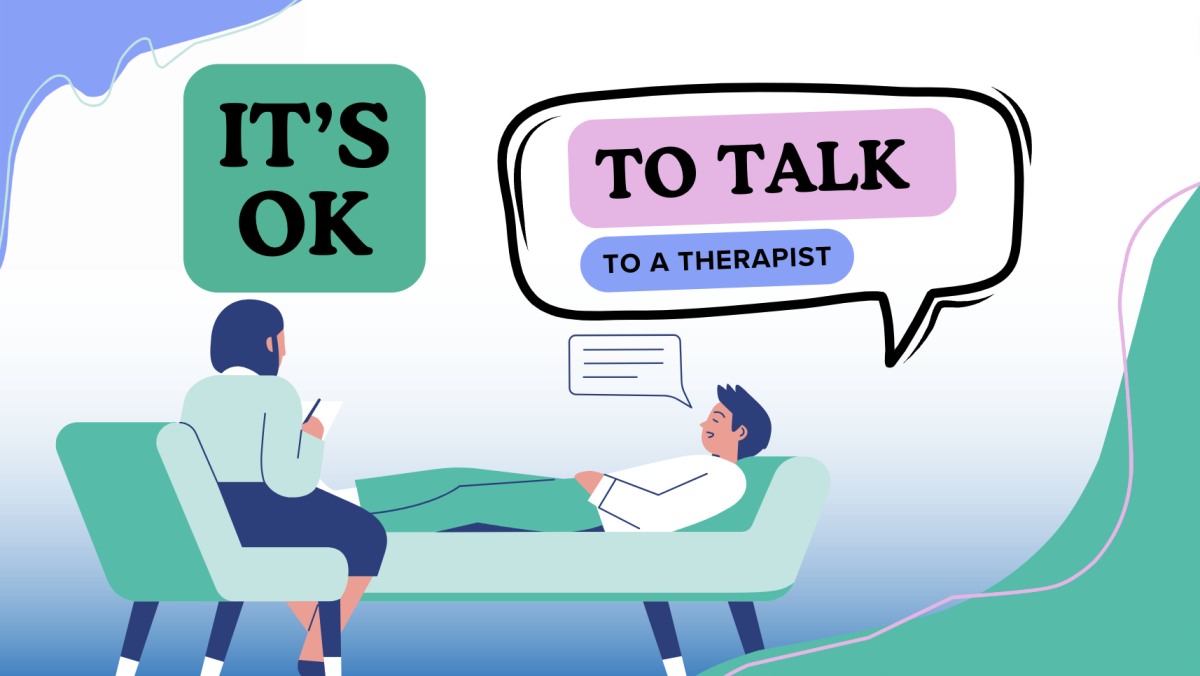As someone heavily influenced by Eastern norms and older generations – where therapy is frowned upon – when I was diagnosed with ADHD and therapy was recommended, I felt ashamed.
Unfortunately, I carried that misguided, ignorant pride into my first session, repeatedly telling my therapist “that this won’t work.”
Four years later, I’ve completely transformed as a human being. Both adults and my peers often ask me how I handle emotionally-taxing situations “with such composure.”
The key? Working through day-to-day struggles, whether big or small, in a healthy setting: therapy. So, if you’re reading this and think it’s a flex to hate on therapy or judge those who see a therapist, spoiler alert…it’s not.
Obviously, people in therapy want the people important in their lives to be in therapy, too. This is for a reason.
I may not have endured major trauma in my life, but I’ve faced many hardships, ranging from friendship to family problems, the pressure of excelling academically, the trials and tribulations of growing up, and so forth.
Therapy has been the primary outlet for me to deal with those hardships, but it has also been instrumental in allowing me to celebrate the joy of life and my accomplishments.
By learning how to have those tough conversations through a myriad of techniques, I’ve gained skills on how to foster better communication, sit in someone else’s shoes, and show up for the people important to me.
School social worker Dan Maigler says that he “likes to think that [therapy] plants a seed that helps benefit future connections.”
If you’ve been struggling with anything, or want to work on something, this is your sign to go.
Maigler also says therapy is like asking someone to take a look in the mirror as everyone should, hopefully, have something that they’re trying to improve on.
“A therapist is an unbiased person that helps to give you feedback on angles from your life that you’re too close to see. There are times in life when if we’re only circulating with our friends and our family, they won’t give us clear, direct feedback; so, the therapist is the person trained in a way to provide that separation, without worrying about judgment or follow-up issues with the things that you share.”
While destigmatizing therapy in every community or culture is virtually impossible, and attending some therapy can have logistical or financial barriers for people, it has the ability to make a positive impact.
If that wasn’t enough to convince you, I want to remind you that everything you learn in therapy can be applied to any real world setting.
“The agreement with therapy is trust. And, in my space here as a social worker, I provide an environment where people can open up and can learn how to trust. What we do in a therapy office is kind of like a laboratory, in which people can take the things that we work on in our relationship and apply them to the rest of their lives,” Maigler said. “Hopefully, in their friendships, in their relationships with family, future bosses or spouses, they can take the things that they’ve learned by opening up and feeling like there’s a safe place where they can give feedback to someone without that person getting angry or defensive.”









Eman • Apr 4, 2024 at 5:44 pm
What an incredibly powerful article. Yes, times have changed indeed. In a post Covid era with heightened anxiety and depression and in a time where mental health issues among all ages has become an epidemic, your article truly nails it. Growing up there was always a “stigma” associated with seeking help. I’m so thankful to have a therapist that I can talk to when we are not in “crisis mode”, learning different coping mechanisms and showing self compassion have been key in staying grounded. Congratulations on this article and the transparency you have so beautifully shown! Great article!!!
Jason Kowalski • Mar 15, 2024 at 8:59 am
I used to go to therapy; I talked to my therapist every week or so for probably over a year. Eventually, it became clear that this so-called “professional” had more interest in abusing his position than understanding his patient’s situation. I left, cancelled all future appointments, and never hired a therapist since.
Eman • Apr 4, 2024 at 5:35 pm
Unfortunately, I had the same thing happen…. It was traumatic to say the least. Don’t let that therapist have that power over you, I wanted to stop but found an incredible therapist that has significantly changed my life for the better.
Jason Kowalski • Apr 8, 2024 at 8:45 am
I don’t think that the same could ever happen for me.
I found that, even when just getting a physical check-up, lying about my mental health was the only way to retain my dignity. If I state the honest truth, that reality is depressing and that suicide is a concept which people think about, I get treated as if I’m not competent enough to withdraw consent. I made that mistake once.
We live in a world where people want to force psychiatry onto non-consenting patients, where medical abuse is widespread and protected by the hospitals, and where the medical system is used to deny people their autonomy. I cannot see myself trusting a system designed to betray my interests.